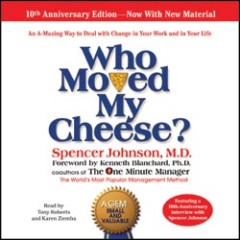Are you excessive or deep thinkers? There is a clear difference between one approach and another. We talk about it in this article.

Last update: June 03, 2022
Deep and excessive thinker: is there a difference between these two types of thinking? Yes, a lot, but most of us swing between the two on more than one occasion. The thinking mind is a factory that never closes or stops and often does not work in the most optimal and efficient way.
We spend a lot of time inside our heads. Let's think about what we did yesterday, today and what we will do tomorrow. We get lost in the labyrinths of those decisions we should make, in the dreams we want to come true and also in those “junk” thoughts that lack usefulness or meaning.
Almost without realizing it, we fall into the cognitive approach of rumination, the one that exhausts, frustrates, takes hours and leads nowhere. What's worse, it intensifies the psychological distress.
How to cultivate a healthier mental approach then and positive for the journey of our life? We talk about it in the following lines.
“Intelligence is not just the ability to reason; it is also the ability to find relevant material in memory and deploy attention when necessary ".
-Daniel Kahneman-
Deep and excessive thinker: characteristics
Thinking deeply allows us to better calibrate the compass of our decisions to take the most appropriate path. On the other hand, thinking too much immobilizes us and mentally drains us. It is obvious that the healthiest and most adequate cognitive strategy is that relating to deep, slow, deliberate and analytical thinking.
However, and here comes the problem, we don't use it as much as we should. We tend to analyze and respond to most situations from a quick, intuitive and subconscious mental approach. Life goes very fast and you have to act quickly in the face of every stimulus.
However, when a challenge or problem arises, we get stuck. It is then that the rumination machine turns on, centrifuging thoughts, regurgitating them and chewing them again. In these cases it is not easy to apply a more reflective and economic mental perspective, able to know when to stop and stop reinforcing irrational and useless ideas.
We can all be deep thinkers and excessive thinkers. However, you need to promote the former and check the latter. Let's see how.
Thinking too much makes us sick: strategies to avoid it
Each of us has gone through difficult experiences and it has been very difficult to stop feeding certain thoughts. No one is exempt from being an excessive thinker, and this is because negative emotions intensify this tendency.
Dr. Susan Nolen Hoeksema was one of the great experts in the field of rumination. In one of her studies she told us how excessive thinking leads us to depression in many cases.
It is also often the trigger for eating disorders and other mental health problems. How can you avoid it? How to manage this cognitive approach?
- Be aware that thinking too much and ruminating does not solve problems.
- Stop fighting thoughts. If we repress them, they raise the volume of their voice. Let's accept them, let's make them present, but let's not value them. They are there and we cannot hide or deny them, but they make noise, they are useless.
- Economize: let's try not to think so much, therefore we select only useful thoughts and ideas. We discard those that cause worry and anxiety.
- The deep and excessive thinker differ in one respect. The first thinks of getting something, the second of worsening his mood.
Deep and excessive thinker: the art of finding solutions
The deep thinker is the one who reasons and analyzes qualitatively different variables, obtains valuable conclusions and can act on the problems surrounding him.
He is able to get in touch with emotions to regulate them, connect with his needs and offer various answers to the same problem.
What dimensions differentiate the deep thinker and the excessive thinker? What strategies should we develop to promote that healthier first approach?
- Practice self-reflection and problem-solving.
- Analyzing thought patterns to assess whether they are useful or not.
- Focus on the here and now. Yesterday doesn't count anymore, tomorrow doesn't exist yet.
- Manage emotions so as not to get stuck on obsessions, fears and irrational thoughts.
- Thinking deeply involves applying a certain optimism and the belief that there are several ways to solve a given problem.
- Confronting to take other perspectives into account. This helps us to relativize problems, widen our attention and reduce stress.
Deep and excessive thinker: who am I?
Most of us think too much, why the brain has an almost innate tendency to focus on the negative, problems, environmental threats. He doesn't care if we are happy or not, he just wants us to survive and therefore makes us worry almost continuously. But worrying too much is almost never helpful.
Faced with these almost instinctive mechanisms, there is only one option: develop a more conscious and rational approach. We need to think better, slower and more deliberately, with greater meaning and purpose, making plans and devising ten solutions for each challenge.
This requires commitment and daily commitment, but it will always be worth it. Let's take care of what happens in our mind, because everything that happens in that space… It determines our life.


























